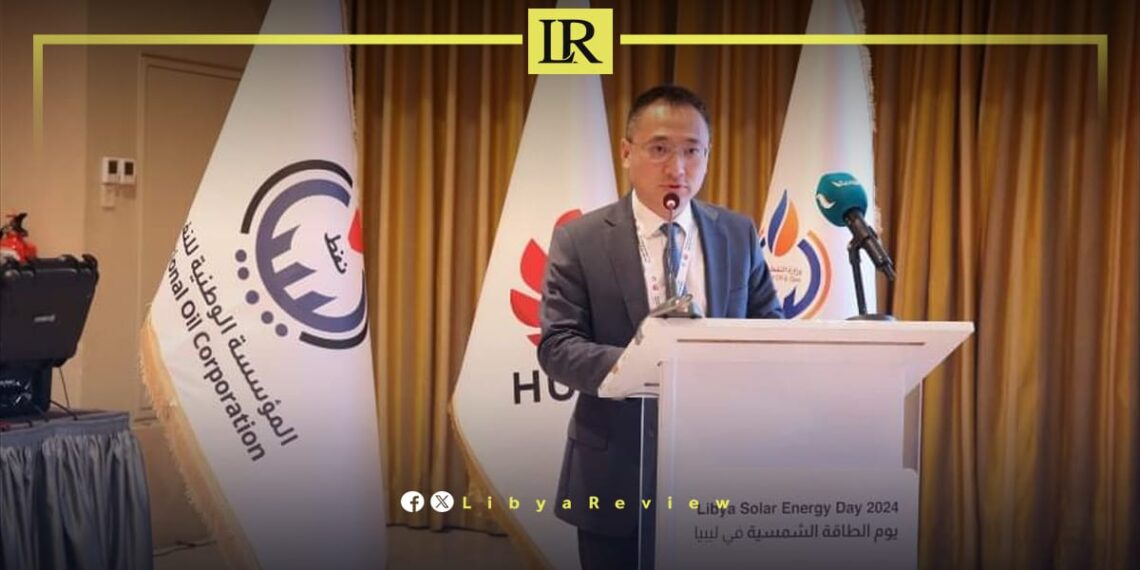The Libyan Ministry of Oil and Gas, in partnership with China’s Huawei, held a workshop on renewable energy to explore the latest innovations and trends in solar energy and renewables.
According to a statement by the ministry, the workshop, which took place on Wednesday, aims to promote the adoption of renewable energy across Libya.
Libyan Oil Minister Dr Khalifa Abdelsadeq inaugurated the event, with attendees including Liu Jian, the chargé d’affaires at the Chinese Embassy in Libya, as well as representatives from Huawei, companies under the National Oil Corporation, the Libyan Renewable Energy Authority, and the Solar Energy Research and Studies Centre affiliated with the Libyan Authority for Scientific Research.
The workshop comes a day after Minister Abdulsadiq held talks with the Chinese diplomat to explore ways of enhancing cooperation in renewable energy and technology, aiming to foster future partnerships.
Last Thursday, Libya’s National Oil Corporation (NOC) announced a significant increase in oil production, reaching 1.2 million barrels per day (bpd) just days after lifting force majeure on key oil fields and ports.
This development comes as Libya resumes full-scale oil production following recent disruptions caused by internal conflict.
In a statement, the NOC reported that crude oil and condensate production has increased by approximately 85,000 barrels over the past two days. Production hit 1,217,148 barrels on Thursday, up from 1,158,862 barrels on Wednesday and 1,133,133 barrels on Tuesday.
The NOC indicated that production rates are expected to continue rising as operations at oil facilities ramp up, with the corporation working toward further increases in output to meet its targets.
Libya, home to Africa’s largest proven oil reserves, has long relied on its oil sector as the foundation of its economy. Oil revenues account for over 95% of the country’s income, making the stability and output of this sector crucial for the country’s financial health.


